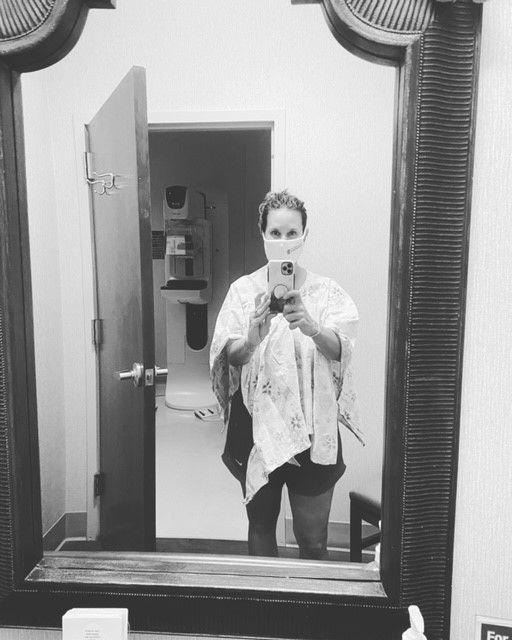
When Jaime Burguieres was young, her 43-year-old maternal aunt was diagnosed with breast cancer. Burguieres watched her vivacious aunt go through painful radiation and chemotherapy treatments that seemingly eradicated her cancer at the time. A few years later, her aunt was diagnosed with Non-Hodgkin’s Lymphoma in the breast, stomach, and hip, ultimately enduring multiple hip replacements because the radiation treatments had destroyed her hip joints.
This event alone gave Burguieres pause. Then she noticed a pattern: her maternal grandmother had breast and ovarian cancers. Her paternal aunt had breast cancer. These cases in her family led Burguieres to ask questions about her health. When she began working for Ambry Genetics, she found out how powerful genetic testing and counseling can be for determining an individual’s cancer risk. She also realized how important genetic testing could be in helping health care providers develop personalized surveillance, risk reduction, and treatment plans for their patients.
On her first sales call over a year ago, Burguieres approached her primary care physician and discussed the potential benefits of genetic testing. As a result, the doctors agreed to pilot hereditary cancer testing through Ambry Genetics that included Burguieres as one of the first patients. 
Burguieres’ test results revealed she carries mutations in the ATM and CHEK2 genes, which meant she has an elevated risk for breast, pancreatic, colon, and potentially other cancers. She was quite shocked at the results, particularly her risk for pancreatic cancer. After finding out that she had two mutations that can increase breast cancer risk, and discussing options with her doctor, Burguieres decided to have a double risk-reducing mastectomy this year at the age of 43. Ironically, this is the same age her aunt initially diagnosed with breast cancer.
Burguieres’ decision to have the mastectomy was not an easy one but she felt this would be the safest route for herself and her future. Burguieres stated that she based her decision on what would provide the most reduction of her risk to develop breast cancer in the first place. She wanted to address breast cancer before it even happened. She also didn’t want her family to have to watch her endure chemotherapy, after having done so already with her aunt. “I felt like it’s not if, but when, I get the disease. So, I needed to take away the when,” Burguieres comments.
Genetic testing and counseling are the key to personalized, proactive medical care. One of the takeaways from Burguieres’ genetic testing experience is how to manage her health better. “Knowing I have a higher risk for pancreatic cancer means I go to my gastroenterologist once a year to have an EUS [endoscopic ultrasound] to know if anything has changed over the past year,” she says. “I also get a colonoscopy every 3 years.”
Burguieres has peace of mind now, knowing that she has taken action to reduce the risk of—and hopefully even prevent—cancer down the road. She is also grateful to have been able to work with her doctors to develop a medical management plan that is specific to her health risks and needs.
“I am so grateful for Ambry. If it weren’t for Ambry, I wouldn’t have known or gotten tested for genetic mutations,” Burguieres said. “I knew I had a family history, but the Ambry testing told me the details I needed to decide what steps to take for myself.”




